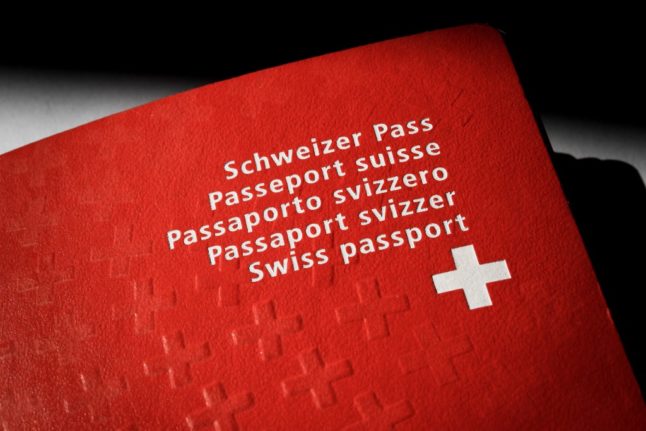The man, named in Swiss media as Orhan T, crashed into a post when driving home from work in August 2020. Swiss media reports he nodded off at the wheel after working several long days in the weeks before.
After the crash the man was hit with a CHF900 fine for “driving a motor vehicle in a non-drivable condition”. There are no suggestions alcohol or drugs were involved.
When applying for naturalisation, authorities in the central canton of Schwyz postponed his application for a further five years (two years probation and a three-year additional waiting period).
Orhan otherwise appeared to be an ideal candidate for naturalisation. He has lived in Switzerland since 1994 – well over the ten year minimum – and runs a restaurant which employs several staff.
Swiss news outlet 20 Minutes reports his restaurant sponsors the local football team, Goldau FC, and supports a range of local clubs and societies.
He also received positive references from a number of local political representatives all across the political spectrum, from the right-wing Swiss People’s Party to the centre-left Social Democrats.
In a decision handed down on March 30th, 2022, the Administrative Court in Schwyz said the man’s accident was a “one-off misstep” which should not prejudice his claim at citizenship.
“It is not apparent how this one-off misstep, in which all other integration requirements are assessed as positive, can have a negative impact on successful integration.”
The court ruled that cantonal authorities must naturalise the man before summer.
‘A fundamental change in naturalisation practice’
The man’s lawyer said the verdict is likely to have significant consequences for naturalisation in Schwyz and maybe in Switzerland in general, as single incidents will have less of a bearing on a naturalisation claim where the evidence shows a person is clearly integrated.
“The administrative court is making it clear that an overall assessment must be made even if there are minor missteps. ‘Killer’ criteria are therefore no longer permissible – it must always be specifically checked whether a person is integrated or not.”
Citizenship advocacy organisation Naturalisation Stories agrees, saying “thanks to the judgement, the authorities must now fundamentally change their practice”.
Recent Swiss history is littered with examples of otherwise worthy candidates being knocked back due to relatively minor aspects.
Switzerland’s naturalisation process is notoriously difficult, with applicants facing a range of hurdles at all stages of the process.
In considering an application, not only will a person have to satisfy financial requirements and minimum times living in Switzerland, but they will need to meet a range of requirements laid out by three levels of government: the commune, the canton and the Confederation.
It is at the communal level where things can get particularly unusual, with people knocked back for not knowing enough about local zoo animals, for not liking hiking and for preferring to holiday abroad rather than in Switzerland.
Nine examples of this are laid out in the following report.
READ MORE: The nine most surprising questions on Switzerland’s citizenship exam



 Please whitelist us to continue reading.
Please whitelist us to continue reading.
Member comments